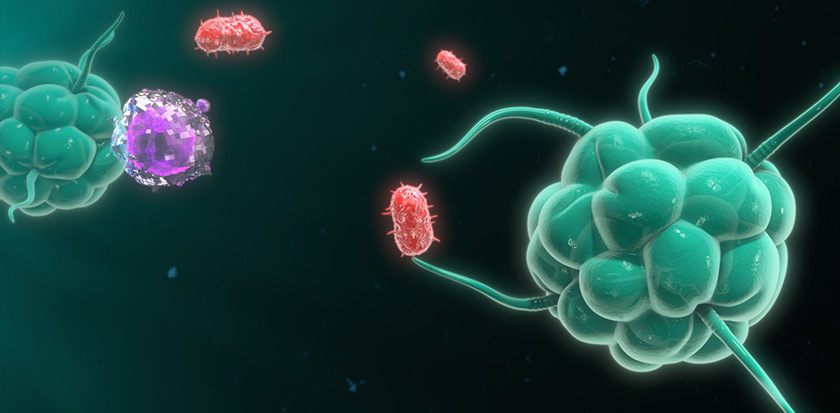It’s probably not a surprise that late-night refrigerator raids aren’t great for your waistline—but a new study has shed light on why eating when the rest of the region is asleep leads to weight gain. According to researchers at Brigham and Women’s Hospital, people who eat late have more intense appetites than those who close the kitchen doors after sundown, because eating late at night has a profound impact on the appetite-regulating hormones ghrelin and leptin. Additionally, the study, which was published in Cell Metabolism, found that night owls who prowl the pantry after dark burn fewer calories than early birds.
“We found that eating four hours later makes a significant difference for our hunger levels, the way we burn calories after we eat, and the way we store fat,” author Nina Vujovic, PhD, a researcher in Brigham’s Division of Sleep and Circadian Disorders, said in a Science Daily report.
What does eating late at night do to you?
According to the Brigham study, shifting your meals to later in the day (by skipping breakfast, for example, and eating a late dinner) slows metabolism—making you burn fewer calories—and stimulates hunger and hunger hormones that lead to food cravings, especially for salty and starchy foods.
The research was based on a controlled clinical trial with 16 overweight and obese participants. Except for meal timing, everything that could be controlled was identical: exact foods and portions, calorie content, amount of light time, amount of dark time, physical activity and posture.
The study measured reactions to a more traditional eating pattern, with breakfast at 8 AM, lunch at noon, and dinner at 5:30 PM. It also tested a late eating pattern: no breakfast, lunch at noon, dinner at 5:30 PM, and a late-night supper at 9:30 PM.
The results verified what many late-night snackers have experienced: late eating doubled the likelihood of feeling hungry and significantly increased how much a person wanted to eat. It also led to increased desire to eat starchy foods, meat, salty foods and dairy—which might be why a fast-food burger, fries and milkshake seem to hit the spot after a night out.
Eating Late vs. Night Eating Syndrome
While the Brigham study focused on people who sit down for their evening meal later than what is typical, it did not include people who wake up in the middle of the night with food cravings and are unable to go back to sleep without food. This condition is an eating disorder called “night eating syndrome.” Previous research has found that people with night eating syndrome are more likely to have more symptoms of food addiction and depression, in addition to poorer sleep quality.
The long-term effects of night eating
Night eating is a concern because research has found meal timing interacts with our circadian rhythm—and that all-important sleep-wake cycle—and impacts health. The Brigham study and others have found late night eating actually alters the body’s circadian rhythm, or the day/night and light/dark patterns.
And we know that abnormal circadian rhythms and chronic sleep problems are associated with poor health and metabolic disorders. For example, night shift workers have been shown to have a high risk of obesity, type 2 diabetes, and cardiovascular disease.
The effects aren’t only seen in adults, however. Research has shown late eating also can affect the health of school-aged children, and the timing of the dinner meal is a factor in obesity. School-age children in Spain who ate dinner late rather than early had double the chances of being overweight or obese. Not only did these young late eaters have a higher waist-circumference, but they also had higher inflammatory markers and more circadian-related disturbances than early eaters.
Why does late night eating cause weight gain?
While science doesn’t state with certainty that later meal times cause obesity or weight gain, it clearly shows a link between them. And we know that after-hours munching does increase the risk of weight gain. As the Brigham study shows, it stimulates hunger and appetite (thanks to its effects on the balance of the hunger hormones leptin and ghrelin) so you’ll want to eat more calories. And to make matters worse, the study also suggested that late night eating may slow fat burning and increase fat storage, a phenomenon adding credibility to the expression, “Eating late equals weight.”
Why does my appetite increase at night?
There are plenty of reasons why your hunger could increase at night, and those reasons are likely different for every person (unless the air is filled with the scents of good cooking nearby—which would make your tummy rumblings easier to explain).
Here are some of the more common reasons why you may feel hungry after bedtime.
-
Skipping breakfast:
You wouldn’t be the only one guilty of skipping breakfast (yes, the most important meal of the day!) and then “grabbing a bite” for lunch. As the Brigham study shows, eating earlier in the day helps control your appetite hormones. You may not be eating enough earlier, so you feel hungry—and eat more—later. This finding underscores the importance of a balanced breakfast, and a healthy mid-day meal, in avoiding binge eating.
-
Stress eating:
Many people “run on fumes” during the day. They are go-go-go, focused on their job, family or other responsibilities and paying little attention to their own needs—especially the need for smart and healthy nutritional choices. This anxiety could lead to unhealthy or insufficient food choices during the day, night-time binge eating, or another eating disorder.
-
Emotional eating:
An eating habit that uses food for mental health, this “crying into a pint of ice cream” meal is the opposite of mindful eating. Emotional eating tends to happen at the end of the day, maybe once the laptop is closed for the night, or the kids are in bed, and it feels OK to take some time for yourself. Often, this translates into night eating.
-
Alcohol:
If you drink alcohol, this lowers inhibitions, which could make it easier to give in to night-time meal cravings.
Should I still eat if I feel hungry at night? Identifying hunger cues
As the science shows, you should try to avoid eating at night. Late-night snacking affects your metabolism, adds calories you likely don’t need to your diet, and can make you hungry and affect your meal choices the next day, increasing your risk of obesity. If the hunger is from boredom or drinking alcohol, try distracting yourself. The hunger may pass, giving you the chance to wake up with an empty stomach and hungry for breakfast, which will help you start a proper circadian rhythm eating pattern.
If you are truly hungry, your appetite won’t go away so easily, so you might have to eat. In that case, try eating an apple or other unprocessed food without added salt or sugar—two substances that can make it hard to stop eating once you’ve started.
How to curb your appetite: 3 techniques
-
Mindful eating:
Also called intuitive eating, this technique teaches you to recognize to your body’s hunger cues (as opposed to thirst, emotion or stress). It focuses on healthy eating habits, movement and satiety (that feeling of fullness) over appetite suppressants or focusing on weight loss.
-
Physical activity:
Regular exercise is a perfect fit for almost every healthy eating plan because it can help control your appetite by influencing the hormones that stimulate feelings of hunger.
-
Get good sleep:
Sleep patterns can influence your levels of the hormone ghrelin, so practicing good sleep habits is important. Getting healthy sleep not only helps you feel not-so-hungry, but it boosts your health in other areas as well.




 Did you know that the majority of your immune system is in your gut? Picture a lush, harmonious rainforest teeming with diverse forms of life; this is what a healthy gut should look like at a microbial level. With more than 1,000 microbial species, most of which are bacteria, your gut’s microbiome makes up an essential part of your immune system. The good bacteria in your gut protect you from pathogenic invaders and keep harmful bacteria from growing out of control. The good bacteria that live in your gut are an essential part of your body’s microbiome. Here are 10 of the best ways to increase your good gut bacteria.
Did you know that the majority of your immune system is in your gut? Picture a lush, harmonious rainforest teeming with diverse forms of life; this is what a healthy gut should look like at a microbial level. With more than 1,000 microbial species, most of which are bacteria, your gut’s microbiome makes up an essential part of your immune system. The good bacteria in your gut protect you from pathogenic invaders and keep harmful bacteria from growing out of control. The good bacteria that live in your gut are an essential part of your body’s microbiome. Here are 10 of the best ways to increase your good gut bacteria.





